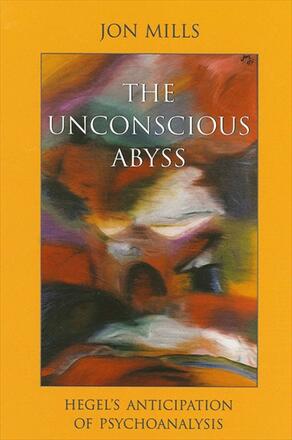
The Unconscious Abyss
Hegel's Anticipation of Psychoanalysis
Alternative formats available from:
The first extended treatment of Hegel’s theory of the unconscious and his anticipation of Freud.
Description
Offering the first comprehensive examination of Hegel's theory of the unconscious abyss, Jon Mills rectifies a much neglected area of Hegel scholarship. Mills shows that the unconscious is the foundation for conscious and self-conscious life and is responsible for the normative and pathological forces that fuel psychic development. In addition, Mills illustrates how Hegel's idea of the unconscious abyss transcends his time and is a pivotal concept to his entire philosophical system—one that advances the current understanding of the psychoanalytic mind.
Jon Mills is a psychologist and a philosopher in private practice, Research Associate at the Research Institute at Lakeridge Health, and teaches at the Adler School of Professional Psychology in Toronto. He is the coauthor (with Janusz A. Polanowski) of The Ontology of Prejudice.
Reviews
"…a well written and extensively argued text that aims to show the unconscious as the foundation for conscious and self-conscious life." — Review of Metaphysics
"The Unconscious Abyss is in many ways a remarkable book, particularly … in the manner and content of Mills' exposition of both Hegel's and Freud's ideas." — Psychologist-Psychoanalyst
"Jon Mills explores, in an intellectually rigorous and detailed way, the Hegelian notion of abyss … as a precursor to the psychoanalytic concept of the unconscious … Mills's book is important and timely because it broadens and deepens our understanding of Freud, whose legacy, dispersed in a welter of camps and approaches, is due for reappraisal. His demonstration of the affinities between Freud and Hegel aids our understanding of psychoanalysis both historically and philosophically." — Journal of the History of Behavioral Sciences
"Mills works out a splendid examination of the many vicissitudes of Hegel's account of the unconscious, and also offers a tremendously helpful and perceptive historical introduction which situates Hegel's own theory in terms of its antecedents and influences, as well as a fascinating discussion of the ways in which Hegel's theory may be brought into dialogue with Freudian psychoanalytic thought. The book shows not only how intrinsically interesting Hegel's thinking about the unconscious is, but also how it is both an imaginative extension of prior speculation as well as a provocative anticipation of twentieth-century preoccupation with the unconscious. This is an absolutely splendid piece of work!" — Daniel Berthold-Bond, author of Hegel's Theory of Madness and Hegel's Grand Synthesis: A Study of Being, Thought, and History
"Mills succeeds admirably in demonstrating the pertinence of Hegel to psychoanalysis. His thorough and historically well-grounded treatment of Hegel's theory of the unconscious opens the space in which Hegel's theory can be brought into productive dialogue with Freudian and post-Freudian psychoanalytic thought." — John Sallis, coeditor of Interrogating the Tradition: Hermeneutics and the History of Philosophy